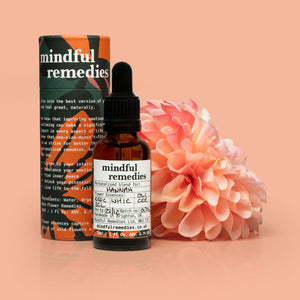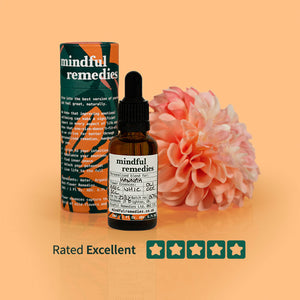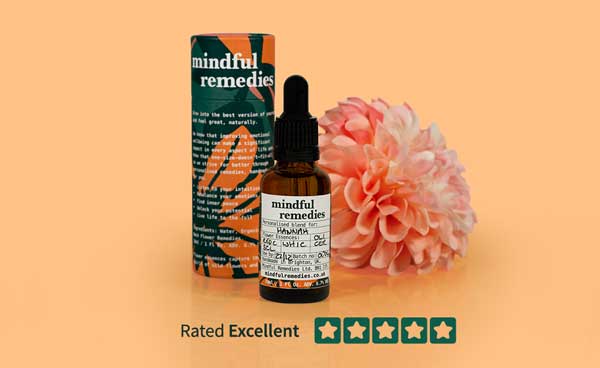your basket
- choosing a selection results in a full page refresh

How often do we find ourselves unhappy with who we are and what our life has become? How often do we feel like we're not living up to our potential or that we could be doing better if only things were different? We spend so much time wishing things were different, but the truth is that they may never be. The sooner you learn to accept yourself, your life and your reality, the happier you will be. In this blog post, we will discuss how to accept yourself for who you are and learn to love yourself just the way you are!
We all have struggles and pain in our lives. It's part of being human. What separates us from one another is how we deal with our reality. Some people learn to accept their reality and find a way to make the best of it. Others struggle against their reality, refusing to accept it. This can lead to a lot of pain and suffering. If you're struggling to accept your reality, it may help to remind yourself that reality is not static. It's always changing. What you may see as a negative situation today could turn into a positive one tomorrow. Learning to accept your reality doesn't mean that you have to like it or that you won't try to change it. It just means that you're willing to face it head-on.
The ability to accept your reality is a key component of mental health. Without it, you may find yourself perpetually unhappy, struggling to cope with the hand life has dealt you. Instead of acceptance, you may feel like you are in a constant state of denial, unable to come to terms with your situation. This can lead to all sorts of negative consequences, including depression, anxiety, and even substance abuse. By accepting your reality, you can take back control of your life and start working towards a better future.

We all have a role to play in our reality. Whether we realise it or not, our thoughts, feelings, and actions all contribute to the life we experience. No one is ever truly a victim. We may be dealt difficult cards in life, but it is always our choice how to play them. Our reality is a product of our thoughts, emotions, and actions. To change our reality, we must first change ourselves. Only then can we take responsibility for our actions and start making choices that align with our goals. Every decision we make brings us closer to or further away from our desired outcome. When we take ownership of our role in creating our reality, we open up the possibility for limitless possibilities. We become the masters of our own fate and the sky becomes the limit. So what are you waiting for?
It is said that what does not kill us makes us stronger. This is often used as a justification for putting ourselves through difficult experiences, in the belief that they will make us stronger in the end. However, this phrase can also be seen as a way of accepting that struggle is a part of life. Whether we like it or not, there will always be difficulties and setbacks. What matters is how we deal with them. Do we give up at the first sign of trouble, or do we persevere in spite of the challenges? By learning to accept that struggle is a normal part of life, we can develop the strength to overcome whatever obstacles come our way.
Do you ever feel like you're not good enough? Self-compassion is a critical aspect of mental health. It entails being kind and understanding to oneself during difficult times, instead of being self-critical. When we are self-compassionate, we give ourselves the same care and understanding that we would give to a good friend. This can be crucial in moments of failure or disappointment, as it allows us to pick ourselves up and try again instead of wallowing in negative emotions. Additionally, research has shown that self-compassion is associated with increased psychological well-being and happiness. So next time you make a mistake or find yourself in a tough situation, remember to show yourself some compassion. It could make all the difference in your recovery.

Self-compassion is a quality that can be developed through practice. Just like any other skill, the more you use it, the easier it becomes. Here are four simple ways to add self-compassion into your daily life:
It's natural to have negative thoughts and emotions from time to time. However, if you find yourself feeling down more often than not, it might be time to take action. There are a few things you can do to deal with negative thoughts and emotions:
Bach flower remedies are natural remedies to support emotional wellbeing and mental health. They are made from 38 different flowers, trees and plants, each which have a specific energy. When taking the flower remedies, they remind the body how to be and bring negative emotions back into balance. Each flower remedy relates to a different emotion. Here we review some suggestions that may help with accepting yourself, self-compassion and taking responsibility for your fate.

Crab Apple - for if you are self-loathing or dislike some aspect of yourself, your mind or your body which makes you feel unclean. This remedy will help you accept yourself how you are.
Larch - for if you lack confidence in your abilities, so much so that you are unwilling to try give it a go. You feel inferior to others. This remedy will help with confidence in yourself.
Willow - for if you are resentful, self-pitying and bitter. You feel like is very unfair and struggle to take responsibility for your fate. This remedy will help you accept and take responsibility for your life.
Gentian - for if you've suffered a set back and are now feeling very negative, disappointed and pessimistic. Eventually you will give it another go. This remedy will help you have a positive attitude to your problems.
Gorse - for if you are in a deeper depressive state than Gentian. You are in complete despair and feel there is no light at the end of the tunnel. You can see no end to your suffering. This remedy will help give you hope, faith and strength.
Centaury - for if you are weak-willed and unable to stand up for yourself. This means you can be taken advantage of and you have given up your own life and wishes to serve others. This remedy will help you stand up for yourself and be more assertive.
Chestnut Bud - for if you constantly repeat the same mistakes, unable to learn fully from life's events. You lack insight into every day lessons and as such have the inability to learn from experience. This remedy will help you with insight and wisdom.
Honeysuckle - for if your head is stuck in the past, constantly wistful for the good old days or longing for days gone by. Perhaps after a divorce or a failed business. This is stopping you from moving forward in life.
Wild Rose - for if you are apathetic to life and stuck plodding along without any real enthusiasm. This remedy will help bring some vitality to your life.
Wild Oat - for if you are struggling to find your path or purpose in life and feel adrift. You are bored and frustrated, constantly starting new things but none stick. This remedy will help with direction.
If you're interested in trying Bach flower remedies, Mindful Remedies offer the ability to personalise your own flower remedy blend. You can choose up to seven in a bottle with any combination. The remedies are taken by mouth and you should have a minimum of four drops, four times per day. They are completely natural, safe and gentle. They can be used at any ages and do not interact with any existing medication.
By making self-compassion a part of your daily life, you can learn to accept yourself, your life, and your reality - even when things are tough. And remember, you are not alone in this - we all struggle at times. So be kind to yourself, and know that you are doing the best you can.

Since 2021, Lucy Edwards, a qualified Bach Flower Practitioner and the driving force behind Mindful Remedies, has connected with clients across the world. Crafting thousands of personalised remedies, Lucy has supported individuals' emotional wellbeing, shipping remedies to far-flung places like the USA, Thailand, and Australia.
Lucy is readily available for conversations, offering personalised advice to guide you on the path to holistic wellness. It's important to note that she's not only qualified but also registered with the Bach Centre, ensuring that every consultation and remedy adheres to Dr Bach’s original guidelines for expert care and efficacy.
Exclusive pricing 20% off your first subscription order and 5% off all future orders
VIP treatment Receive personalised advice from Lucy, free gifts & 15% off gift vouchers
Easy to manage Edit remedy, change schedule, pause or cancel at any time
Exclusive online workshops Access to workshops focusing on emotional wellbeing, guided by Lucy
Early access to new products Be the first to try out new remedies or wellness products, before anyone else



